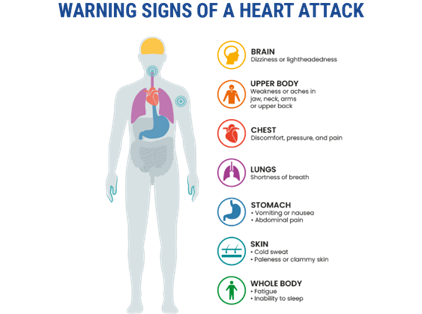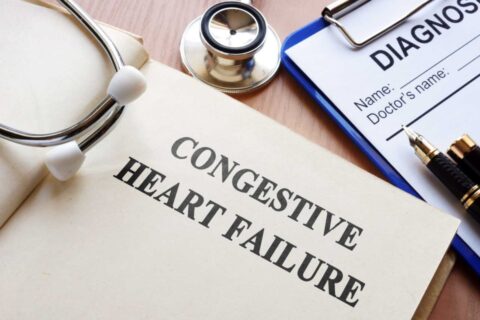Recognizing the Early Signs of a Heart Attack
Heart attacks don’t always shout for attention. Sometimes, they only whisper subtle warning signs before striking. Recognizing the early signs of a heart attack can make all the difference in preventing a life-threatening event. Complete Cardiology Care specializes in heart health and is here to help you understand the signs and symptoms of a heart attack.
Why It’s Crucial to Know the Warning Signs of a Heart Attack
Heart attacks are the leading cause of death worldwide, but they don’t always have dramatic symptoms like you see in the movies. Spotting the early warning signs of a heart attack could save your life or the life of someone you love. If you suspect you’re having a heart attack, call 911 immediately. Prompt action increases the chances of receiving life-saving treatment and minimizing damage to the heart.
Common Myths About Heart Attacks
A heart attack occurs when blood flow to a part of the heart is blocked, perhaps by a clot or plaque buildup in the arteries. Without immediate treatment, the lack of oxygen can severely damage the heart muscle. Here are a couple of facts and myths about heart failure and attacks:
Myth #1: Heart attacks always cause intense chest pain.
Fact: Not all heart attacks are accompanied by severe pain. Milder symptoms like discomfort or pressure are also common.
Myth #2: Only older adults or men have heart attacks.
Fact: Heart attacks can affect people of any age or gender, though risk factors may also vary.
What Are the Signs and Symptoms of a Heart Attack?
It’s important to know the first signs of a heart attack so that you can act quickly. Here are the most common symptoms to watch for:
- Chest Pain or Discomfort – Chest pressure, fullness, or aching are classic signs of a heart attack. It may feel like an elephant is sitting on your chest or merely unusual tightness.
- Shortness of Breath – Feeling winded after mild activity or even while sitting could signal a problem.
- Unexplained Fatigue – Sudden or extreme tiredness, especially without a clear cause, may be one of the early warning signs of a heart attack.
- Other Symptoms – Sweating, weakness, or discomfort in one or both arms may also indicate heart trouble.
Understanding Less Common First Signs of a Heart Attack
While many people recognize chest pain as a sign of a heart attack, some warning signs are less obvious, such as:
- Nausea or Vomiting – Feeling queasy or throwing up can sometimes indicate a heart attack, particularly in women.
- Lightheadedness – Dizziness or a faint feeling could be another clue.
- Jaw or Back Pain – Discomfort radiating to the jaw, neck, or back is commonly overlooked, but it might be your body signaling a heart issue.
Risk Factors for Heart Attacks
There are two main categories of risk factors for heart attacks and heart disease. They include:
- Lifestyle Factors – Smoking, lack of exercise, and an unhealthy diet can all increase your risk of heart disease.
- Genetic Factors – Your genes also play a role. A family history of heart disease, high cholesterol, or certain heart rhythm abnormalities can raise your chances, so staying proactive about your health is important.
Why a Timely Response Matters
Every second counts when you feel or notice potential heart attack symptoms. Getting treatment early prevents further complications, reduces damage to the heart, and significantly improves survival rates. If you or someone around you experiences any of the symptoms listed above, don’t wait to call your doctor or an emergency medical provider.
Complete Cardiology Care Is Here to Help
The Complete Cardiology Care team serving Sugar Land and its surrounding communities prioritizes heart health for all of our patients. We’re ready to assist if you want to learn about minimizing risk factors or need expert guidance. Contact us today to schedule a consultation.



